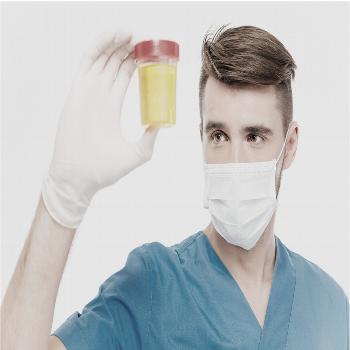The 5-Panel Urine Drug Test + ETG Alcohol provides a comprehensive assessment of substance use, combining the detection of five common drugs with a screening for recent alcohol consumption.
Key Features:
- Drug Detection: This test screens for five major substances:
- Amphetamines
- Cocaine
- Marijuana (THC)
- Opiates
- Phencyclidine (PCP)
- Alcohol Assessment: The inclusion of ethyl glucuronide (ETG) testing allows for the detection of recent alcohol consumption, providing a clear picture of an individual's alcohol use.
- Fast and Reliable Results: The test is designed for quick analysis, offering timely results to facilitate informed decision-making.
- Versatile Applications: Suitable for various settings, including workplaces, rehabilitation programs, and personal use, this test helps ensure safety and compliance with substance use policies.
- User-Friendly: The testing process is straightforward, making it accessible for non-medical professionals to administer.
By offering a thorough examination of both drug and alcohol use, the 5-Panel Urine Drug Test + ETG Alcohol is an essential tool for monitoring and managing substance use in a variety of contexts.
Why would I need this test?
The 5-Panel Urine Drug Test + ETG Alcohol is ideal for individuals or organizations that need to screen for the presence of common drugs of abuse and recent alcohol consumption. This test is commonly used for:
Pre-employment screenings, especially for safety-sensitive positions.
Monitoring individuals in rehabilitation or treatment programs for substance use.
Legal or court-ordered testing.
Post-accident testing or routine workplace drug and alcohol testing.
The test not only detects drug use but also includes ETG (Ethyl Glucuronide) testing, which is a sensitive marker for detecting alcohol consumption within the past 80 hours, depending on the individual's metabolism and amount of alcohol consumed.
Will over-the-counter or prescription medications affect the test results?
Yes, certain over-the-counter and prescription medications can potentially affect the test results. Medications or substances that may result in false positives include:
Cold medications or decongestants (containing pseudoephedrine or phenylephrine) may trigger positives for amphetamines.
Certain pain relievers containing codeine or hydrocodone.
OTC sleep aids containing diphenhydramine.
For ETG alcohol testing, products like mouthwash, hand sanitizers, or cough syrups that contain small amounts of alcohol could result in a positive result.
It's important to disclose any medications, supplements, or alcohol-containing products you're using to the testing administrator to ensure accurate interpretation.
How is the sample collected for the test?
The test requires a urine sample. Here’s how the collection process works:
You'll be provided with a sterile collection container and directed to a private restroom to provide the sample.
In some cases, the collection may be observed by a technician to ensure the integrity of the sample.
The sample is then sent to a laboratory for analysis to detect the presence of drugs and alcohol markers (ETG).
The entire sample collection process typically takes just a few minutes.
